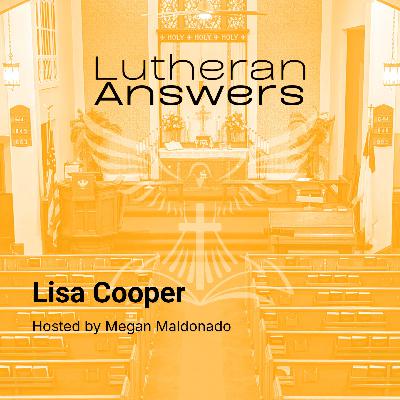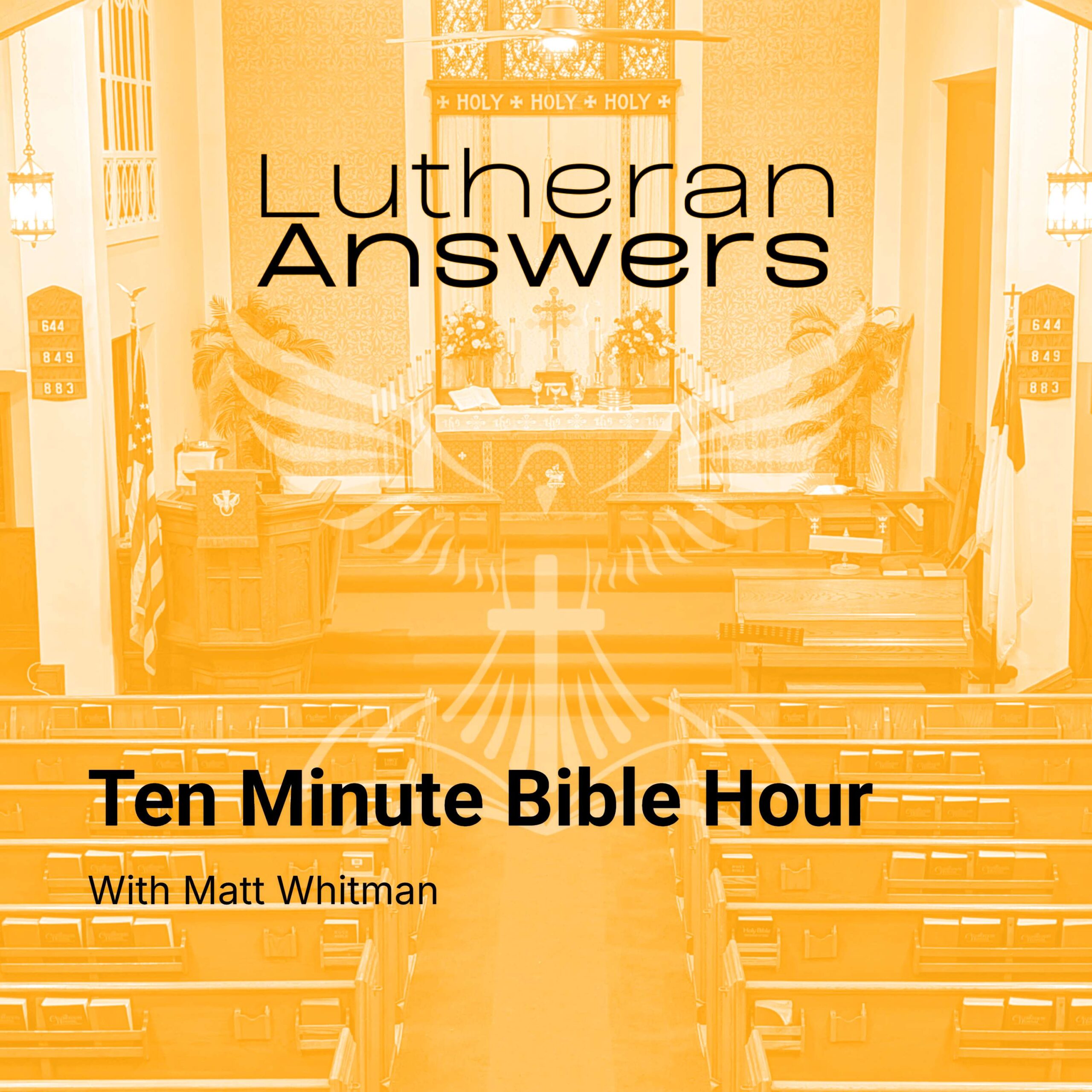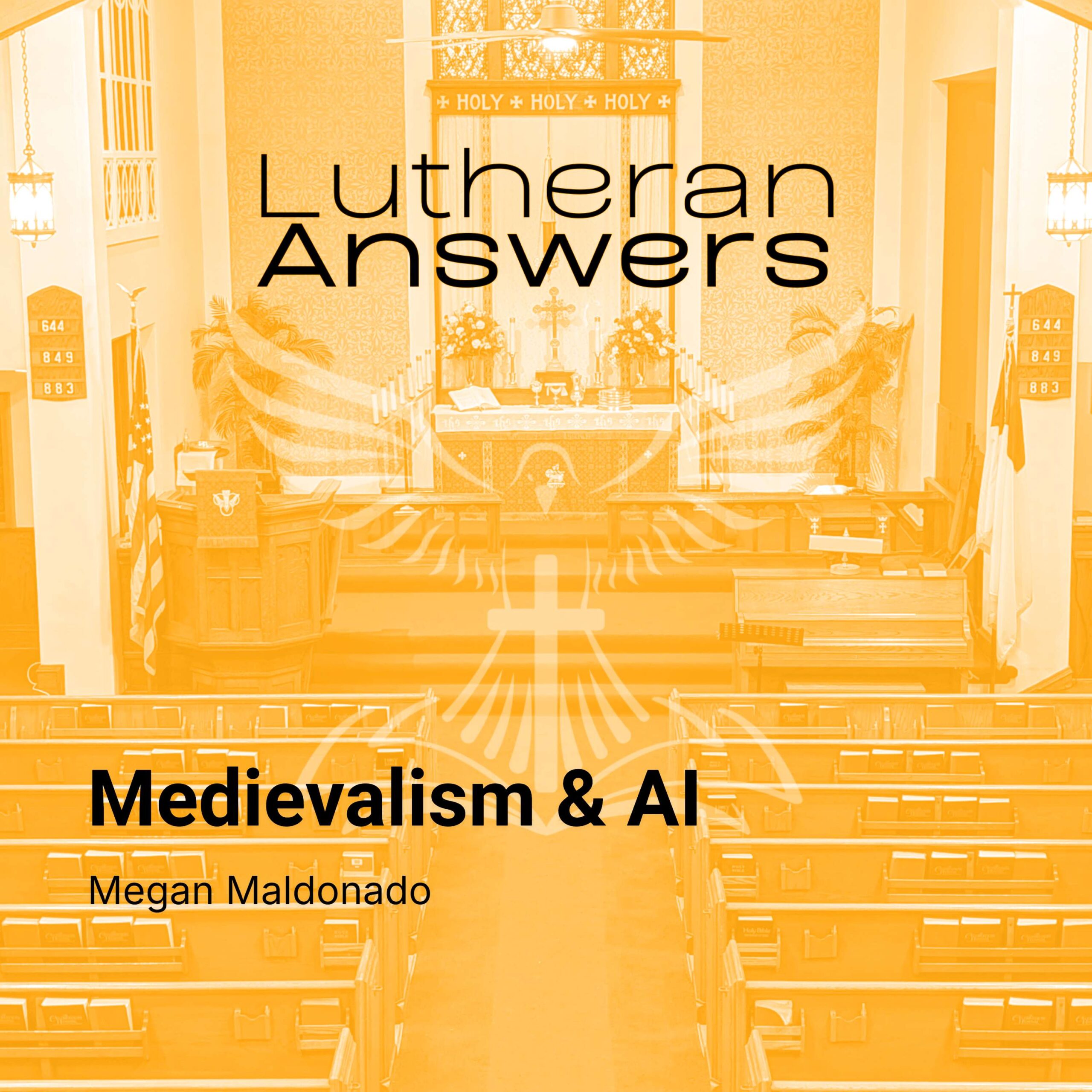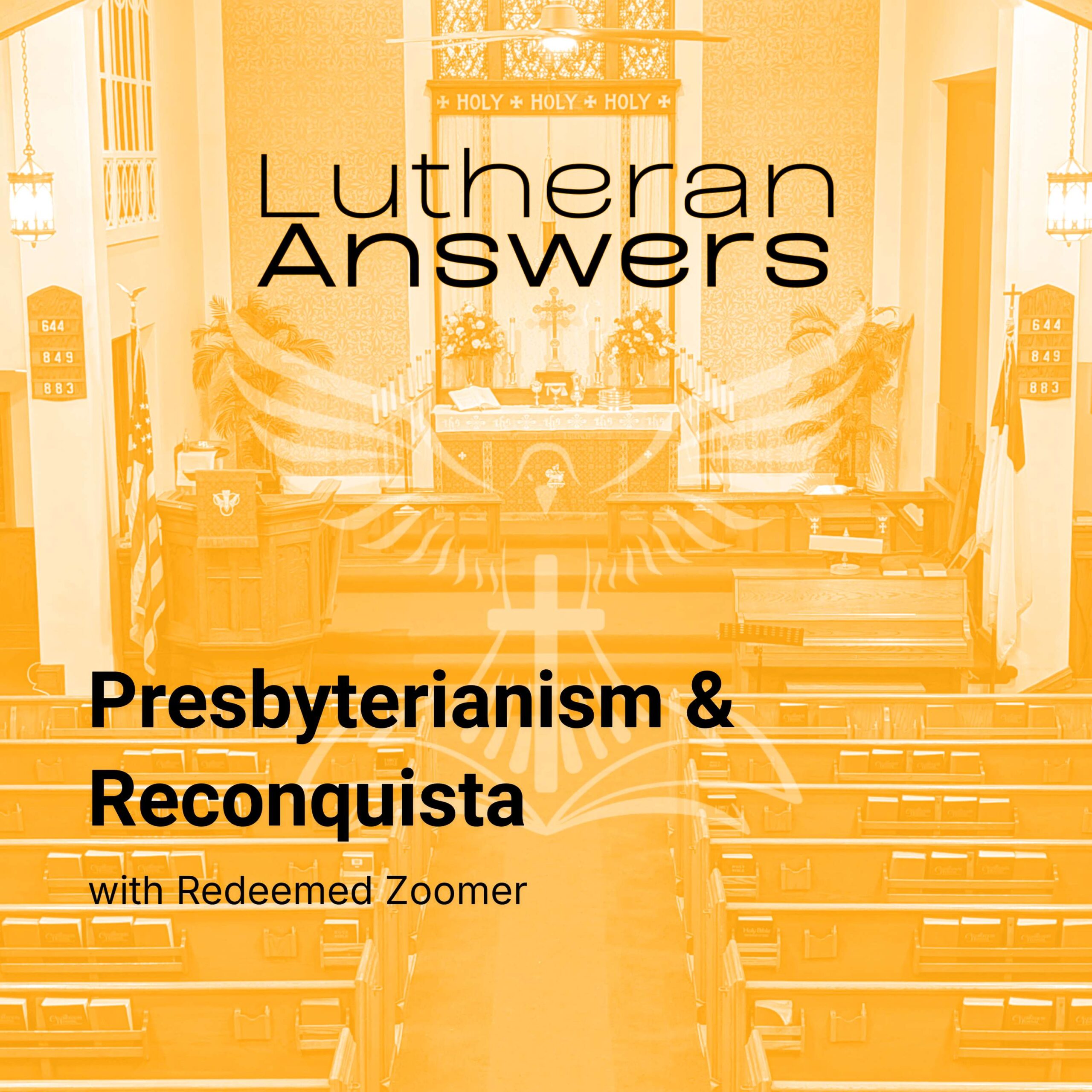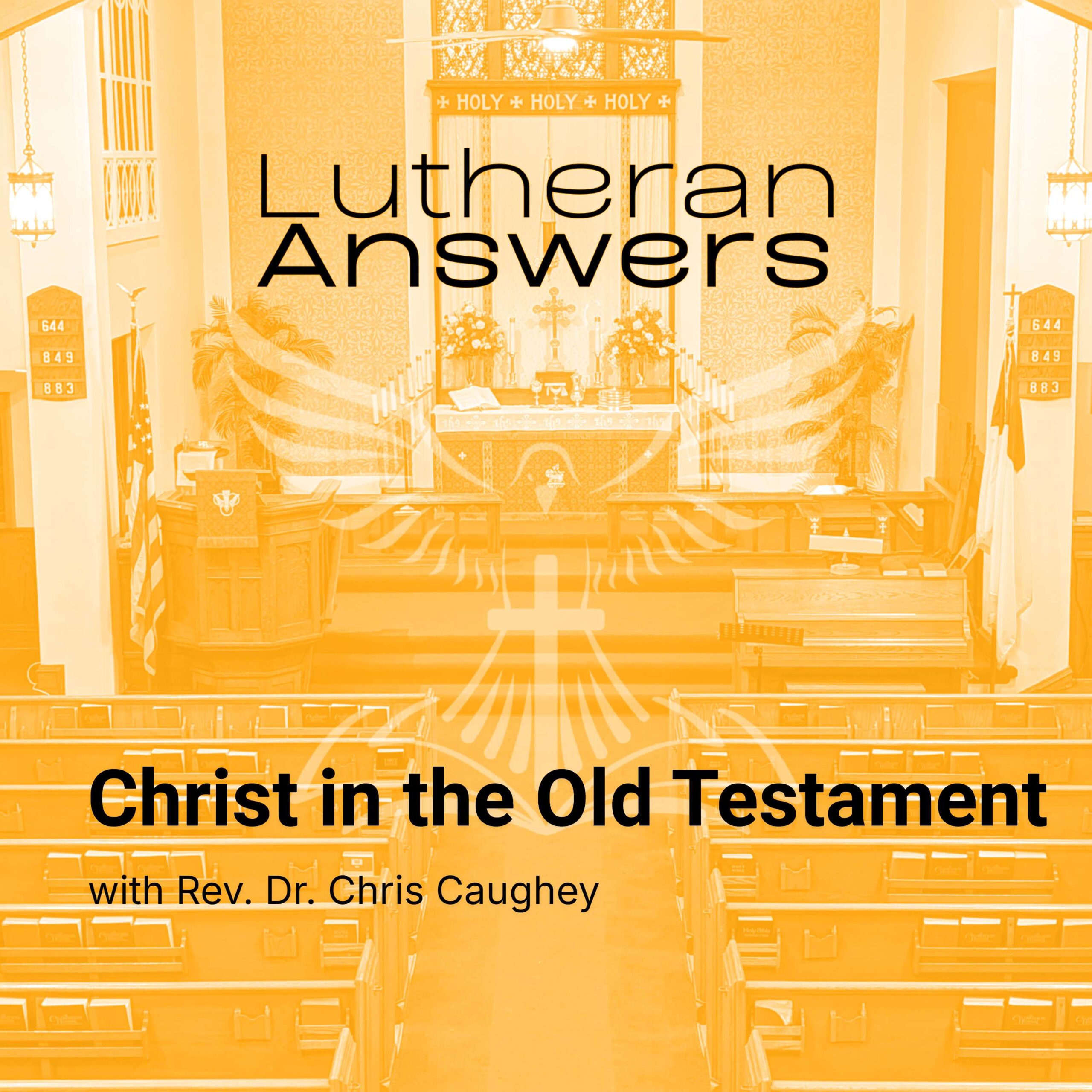With Cory Laflin
Description
Here's what we talked about:
- The Last Boil
- Official Chili Appreciation Society International Website
- Madelyn Rose Craig
- American Lutheran Theological Seminary
- Limitless, with Bradley Cooper
Make sure to follow Cory on X @CoryLaflin
Nifty Links:
Click Here to Check Out the Store
Greatest Theology Newsletter on the Planet
Transcript
[00:00:03 ] Cory: I'm about to be in the show.
[00:00:05 ] Remy: Oh, you're on the show.
[00:00:06 ] Cory: I'm on the show now. Oh, okay.
[00:00:08 ] Remy: Wow.
Corey Laughlin from Twitter.
I always said. I always said Laughlin.
[00:00:17 ] Cory: Everybody does. I get used to that.
[00:00:19 ] Remy: Sure.
I guess Laughlin would be like. There would be a U and a G H instead of just an F.
[00:00:27 ] Cory: Yeah, that's what I mean. There are. There are Laughlins out there that are. That are Irish or Scottish descent.
I'm not those.
What are you. What are. Comes from a different. So, dad. So Laughlin comes from, actually French Laflamme.
And before that. Before that, it was.
It was Kemner. Q U E M E N E U R Ken, here's the story, please.
So Papa Urvay or whatever came over from Britain, from the extreme northwest of France, and he moved to Canada, moved to Quebec, and he set up on the Ile D'Orleans in the St. Lawrence Seaway, just north of or just northeast of Quebec City. And he was tired of. As the story goes, he was tired of boats running ashore on the island. It's a pretty big island in the middle of this gigantic river, essentially. And so he started building bonfires to act as kind of an ersatz lighthouse.
And so they started calling him La Flamme. Was French, at least at the time, or maybe still is for bonfire or slang for campfire or bonfire or something like that. And so then it just kind of stuck. And so we've seen actual documents of Louis Kemner D. Leflam, which means that just call D being called being or being said, said, like Leflam. So eventually it just.
It got Anglicized.
They were happy living in Quebec until the Homestead act happened. And then all of a sudden, they ended up. All of a sudden they ended up in Vermont.
Funny how that works. And then made their way down to. Unlike all the cool Acadians and French Canadians, they didn't keep going to go to Louisiana. They stopped in Kansas. And here we are.
So that's Dad's side of the family. Well, that's where the name comes from.
Also has a fair amount of Welsh in there. And Mom's side is 100% German, therefore, you know.
[00:03:03 ] Remy: Excellent. What are you drinking? What is that?
[00:03:05 ] Cory: I am drinking spent Oktoberfest. Because it is the last day.
It is the official last day of Oktoberfest, because I believe Oktoberfest runs through the first Sunday in October, if I remember correctly. Not that my mom's family is from northern Germany. In fact, we're going There in December. Um, my mom and my brother and my son and. And my, My niece, we're gonna go visit the. We're gonna go. We're gonna go and. And remind ourselves why we left in the first place.
Why the family left. I suppose.
[00:03:40 ] Remy: Amazing.
I. I'm drinking Modelo.
[00:03:44 ] Cory: Nice.
[00:03:46 ] Remy: But I'm doing it in my. This is. I don't know if you'll be able.
[00:03:50 ] Cory: Oh, nice.
[00:03:53 ] Remy: It's the Last Supper, but it's a crawfish boil.
[00:03:56 ] Cory: Crawfish boil. I love it.
[00:03:58 ] Remy: Yeah, look, that's. That's totally Tony Shasheries right there.
Cajun seasoning on the table.
[00:04:07 ] Cory: Yeah, that's nice. That's. That's beautiful.
Good stuff. I like, I like Modelo, but it's just kind of. I had this for the. We had a.
Like our district men's retreat this weekend on Friday and Friday night and Saturday through. And so I've got a couple leftovers.
What was that?
[00:04:33 ] Remy: Tell me about your district men's retreat.
[00:04:35 ] Cory: Oh, so we have a.
Actually have a decent sized house out in the center of the state and every like late September, early October.
Yeah, we do like a Friday night and Saturday men's retreat. And this year we talked about classical Lutheran education with the headmaster of Concordia Academy, Wichita.
Okay.
[00:05:03 ] Remy: Okay.
What were your thoughts and feelings going into that? What were they going? How did you change? How did you grow? Tell me more.
[00:05:11 ] Cory: I mean, I learned a lot.
Headmaster Snyder did a talk, mostly it was a history lesson on where education, where the roots of education really started and what the different philosophies in education were going down through history. Because when you say classical education, that's not really a terribly well defined term. And so he broke it down from the Greek era through the.
Through the cathedral schools versus through the university, through going from what would be more of a general college education to actual subjects and this, that and the other. And talked about different philosophies and stumbling blocks along the way in terms of why we need to kind of reclaim education nowadays in the, you know, in the modern context. Also.
Also too much to our chagrin found out that. That the concept of public education was started essentially by the Lutherans of Northern Germany.
[00:06:23 ] Remy: Awesome. Amazing. Amazing. And probably so that everyone would be able to study the Bible.
[00:06:29 ] Cory: Yeah, right, Absolutely.
Rather than keep it was to put it in the hands of the. Of the. You know, it was the whole left hand, right hand kingdom thing. Right. So they. So put the chart. The schools in charge of the left hand kingdom to keep the. Keep the church, let them make sure they study the Bible and not have to worry the church about the day to day operations in schools.
[00:06:53 ] Remy: Amazing.
Amazing.
[00:06:56 ] Cory: To which one of the pastors, to which one of the pastors, when he dropped that bomb on us, went, mea culpa, mea culpa, mea maxima culpa.
Too much laughter.
[00:07:10 ] Remy: Yeah, yeah. We. Public education is not the same, I assume these days as it would have been.
[00:07:19 ] Cory: I know.
[00:07:21 ] Remy: At its genesis.
[00:07:23 ] Cory: No. And it's, it's so I'm. I'm only say tertiarily evolved with Concordia Academy Wichita being. I'm the chess coach there. But only because. Only because my son graduated out of high school like literally the year before they started there. And I really kind of wish we'd had.
[00:07:46 ] Remy: What a dorky school. The chess coach. Get out of here.
[00:07:51 ] Cory: I played when I was in high school and then I got out of college and I played some more, a little bit just as a hobby. And then a friend of mine who ended up moving from being kind of an adjunct professor at WSU at Wichita State University, when I say wsu, that's the term I'm defining, to being a math teacher up at one of the suburbs, essentially Valley center, which is a northern suburb of Wichita, and found out that she'd inherited the, the chess, the chess club as part of being the math teacher. And she asked me if I wanted to help kind of get it off the. Off the ground. I said, sure. And I was there 17 years.
We won six state titles.
I outlasted her.
[00:08:46 ] Remy: Just get her off the ground.
[00:08:48 ] Cory: Yeah, I outlasted her as a sponsor. I outlasted the next person as a sponsor. And when the third person who is the sponsor decided that they weren't going to do it anymore because they wanted to spend time with their kids, were a younger guy and his kids were just getting up to that age of doing stuff. I was like, all right, I'm going to call. And my son was in the second half of high school. And so I was like, you know what? I'm not breaking in. I'm not breaking in another sponsor.
We're going to take a break.
So we took a break and Henry graduated and then kind of got the itch again. And Concordia Academy started up a couple of years ago and I asked them, is this something you'd want to do? And they're like, yes, like, okay.
So last year was our first year and we have a grand total of four people in the club considering there's, I think only 12 people, the 12 kids or 13 kids at the school. I think we're doing okay.
[00:09:43 ] Remy: I think that's a pretty good. I think that's a pretty good talk then about vocation, huh? And just doing, doing what's in front of you. Doing what God puts in front of you. Is that as a, as a man and you strike me as a pretty driven man and a father. Is it, is it fulfilling to, to just do the work God puts in front of you? Is that fulfilling in your life?
[00:10:09 ] Cory: You know, it's been a, there's been a lot of. I've had a lot of issue trying to figure out what that is.
And I don't think I'm alone. I think there's a lot of people that have that. And especially when you actually don't have that metaphysical worldview and you wonder what am I supposed to be doing? And regret starts to creep in and did I miss my window



